With around $1 million in resources raised to build girl‑driven organizations, the With and For Girls Collective[1] asked panels of teenaged girls to decide which organizations to support under its global awards programme. To do so, the collective held application-assessment meetings in five regions, and provided the panellists with a day of training. The girls evaluated applications and videos from 47 organizations, interviewed members of short-listed groups and, in the end, selected 20 small and medium-sized organizations to receive grants from $15,000 to $50,000. Four girls from the panel – Saima Chougle, Alia El Kattan, Judith Mtambo and Jade Adeoba – told Paula Park what foundations should do to ensure the organizations they fund respond to girls’ needs and hear girls’ voices.
Why in the world should we let teenagers make decisions about big amounts of money?
Judith: I think teenagers should be trusted because they’re primary users of everything and the teenagers know what they need and where to allocate the money. They need to have an older person direct them, but on decision-making, the girls should choose. We have to trust them because they know their problems.
Alia: We need to stop underestimating the power of youth and the energy of youth, just due to age. I think if we give teenagers such powers and such responsibilities we are actually helping them develop into great leaders and these are the people that will rule the world in the future.
Did you start out with your own ideas about what organization you would want to grant funds to? And did that first idea change?
Saima: There was one organization. After reading what work they were doing, we thought that it was a really good NGO – that they’re doing a nice job for girls. But then when we heard their interview we felt like it was kind of fake: in such an area where there are so many restrictions for girls, how it can be that so much has changed in just a few years?
Alia: I was very surprised by how much my ideas changed concerning some of the organizations. So for example, if you were looking at the audio-visual applications and the written applications, I had a negative point of view towards some of the organizations. But when we actually interviewed them and got to ask them questions, we saw first‑hand their passion towards the issues they are dealing with.
How did you ultimately decide, was it a vote, did each person speak about organizations they supported?
Jade: We spoke to each group and took notes. At the end of everything, we had a massive discussion comparing our notes – pros and cons – it was really discussion-based for our group.
What was the biggest debate in your group?
Alia: We had a huge debate about how we could look at different organizations, dealing with different issues, and compare the work they are doing. I realized that it’s not necessary for organizations to be dealing with the more basic issues such as security or safety and that it is equally as important for organizations to be working on developing the girls’ creativity and leadership skills, things like that.
Judith: We had those that had very nice ideas but we did not get [information about] impact. There were those who had demonstrated their impact and yet they didn’t have very good planning and their response to the questions was a bit vague.
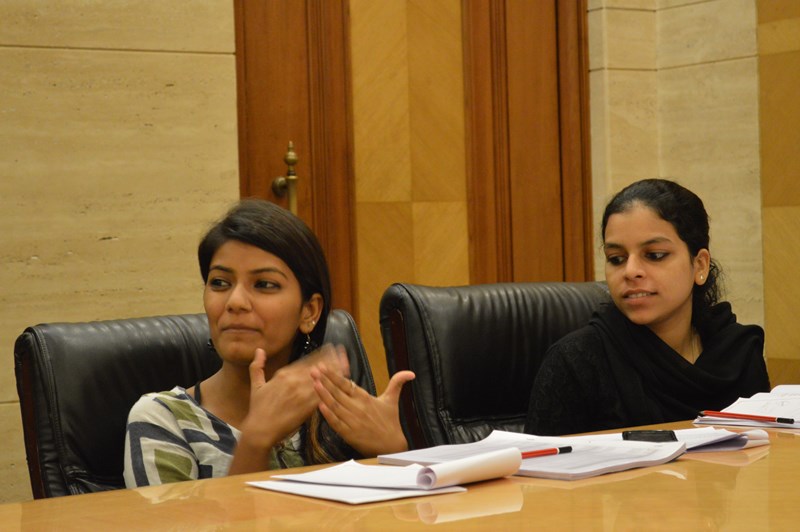
Saima Chougle, 18, first on left, from Mumbai is a member of the Vacha Girls Council, which is a leadership panel for girls across India. Vacha is an NGO created in the 1990s to work on women’s issues and now focuses on adolescent girls and boys.
What criteria did you use to make the final decision?
Alia: We had four criteria. One was just generally the background – what the needs that they’re targeting are, and how. And we also judged how girls were involved in the decision-making process and their participation. We also assessed [the groups’] achievements [as well as] evidence of how things changed. And then we were talking about future plans and how they could have more impact through the awards.
With and For Girls Collective talks much about agency. How would you define agency?
Judith: Well, for me, agency is a voice. That is, a group of people that have organized themselves to help out – to look at the needs of a specific area of community: it’s like a tool for pointing out problems facing an area.
Why is agency important?
Jade: It’s important because, first of all we are all human, and we are all equal. If you are trying to have an influence on a specific kind of people, you’re going to need an input from that specific kind of person. Unless you know what these people want and need, you can’t help them.
How do you think foundations that give grants can best ensure that girls have agency?
Saima: Girls should have the decision-making power, then they can bring change. So it’s actually a big thing.
Jade: Whatever your aim is, you need to look at who the programme should be addressed to, get a bunch of startup groups of those people, and just see what they have to say. Because without their opinions or their say, you don’t really know what you’re doing or whether what you’re going to do will be worth it in the long run.
People have been talking about improving the status of girls and women for quite a long time. Why do you think we haven’t been able to do more sooner?
Alia: I think a lot of improvements have been made towards issues of gender equality and improving the status of girls, but there still is a long way to go because girls still are under-represented in many fields. And I think the only way to really improve the status of girls is to make sure we involve girls, eliminate falsehoods, and make sure that girls are actually being heard.
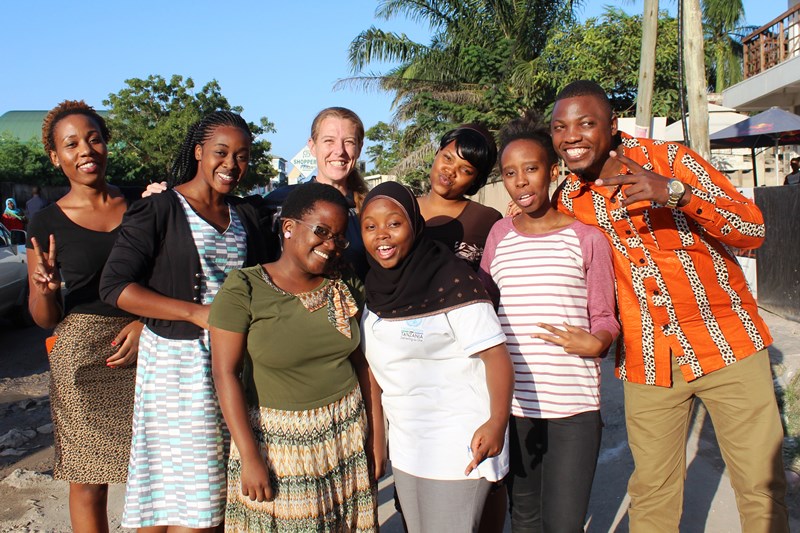
Judith Mtambo, 19, third from left, from Dar es Salaam, has completed her high school education and is awaiting test results. She volunteers at University Abroad Link, providing university‑bound students with advice and counselling.
Judith: I think the reason why we have a long way to go is because of ignorance that a lot of people have. They are not exposed to the problems that girls are facing and women are facing. There is also a problem of ignoring women and not considering them as an important group in society.
There is also a long way to go because there is a problem of corruption.
There is also backwardness of women and girls themselves. They don’t have education and they are not aware of their sexual reproductive health and sexual reproductive health rights. But even if people tried to reach them wherever they are, they do not want help because they don’t see any importance. So we still have a long way to go with it because of the problems that they are facing in the society.
Why girls and not women?
Saima: Girls are our roots. Once the root is strong the tree doesn’t need any support. Foundations should also focus on girls because women have lots of restrictions over them, in their family.
Alia: Unless we actually deal with the issues that concern girls, these girls are going to grow up to become women who don’t have rights and who aren’t able to speak up for themselves. So I think it’s right that we deal with girls from a young age to help them to grow to become leaders. Then you can have a generation of women who are responsible and independent, and who have authority.
Judith: A woman is the product of what she was as a girl. Some problems psychologically affect them when they become a woman. So I think foundations should focus on the girl to make a better woman in the next generation. And by making a better woman, it will help that woman to help another girl become a better woman.
How do you make sure that you’re having a true impact on girls?
Alia: I think that impact could be measured through things like statistics and surveys. But I think it’s very important also to make sure that you hear from the girls who have actually been involved in the programmes and in the activities of the organizations.
Saima: I would like to say, evidence is important, because we can actually see that they were there, made some impact and what they were doing and that the funds are being properly used. There are some organizations that showed lots of changes, but we didn’t have any proof or evidence that they made the changes they talked about. We really need evidence for everything, because [the grants] are not our own funds.
Judith, what was the main reason you decided to support Katswe, an organization for street workers in Zimbabwe?
Judith: Katswe succeeded in giving us evidence of what they have worked on. One of the examples they gave us concerned their demonstration about dress codes for women in Zimbabwe. In a video, they showed girls being harassed just because they wore short skirts. [Katswe] demonstrated against it and [the demonstration] had an impact: the government granted them what they wanted, that is, their dress code was not judged. [The justice minister announced that women had a right to wear what they wanted.] But apart from that, they knew leadership and mentorship programmes for children or girls will help [street girls] know how to work out their problems. We spoke about giving to their work because this will help fight against poverty.
Why work on safety and security in the Middle East, rather than, for example, a leadership programme or some of the health programmes we saw in other areas?
Alia: Unless girls are also provided with safe spaces, where they can feel secure and safe, they cannot really work on any leadership issues.
One project you selected for funding was Shoruq. Why?
Alia: Shoruq involves girls in several ways. After every activity, they surveyed the girls and listened to their opinions regarding the projects. And also, two of the girls that they work with – I think they were maybe 14 years old – were actually in the interview, and Shoruq allowed the girls to answer the questions and talk about the organization. That really reflected how much they value girls and value their opinions. And the two girls – you really felt they were being listened to and that their concerns were being heard. They are sometimes invited to board meetings, and when Shoruq is applying for future projects, the girls are part of the decision over what to do and how to do it.
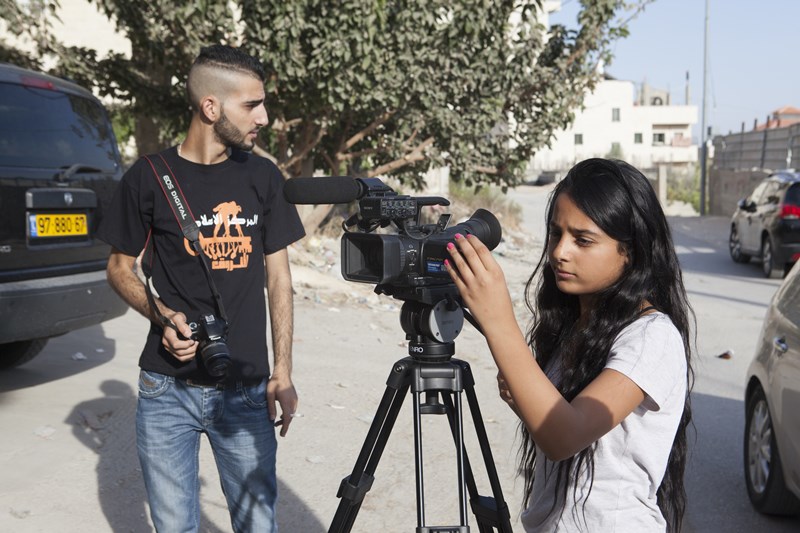
Shoruq helps young people and children develop confidence by building their media and advocacy skills.
In the difficult Middle Eastern environment, how would you advise organizations to ensure that they’re helping girls develop into leaders?
Alia: Girls that have faced problems regarding their security, those who are refugees, have lived in very unsafe conditions – they are horrifically affected by these situations and it has really influenced their personality. If they feel very insecure that really affects their role in the future.
So if a girl feels that she isn’t safe and she can’t even voice her opinion, she won’t grow to become a powerful leader.
So I think we should really focus on, not just helping them in terms of their physical security and their safety, but also making sure that the girls feel they can talk about things they been through – to be able to develop as human beings – and to be able to solve their issues so they don’t happen again in the future.
Now to the UK. Why did you choose Integrate Bristol, an organization that helps integrate young people and children from other countries and cultures?
Jade: Eventually, we went back to what the award was really for. And we looked at all the different criteria – why would this award have been given, if it was given to either one of them? And we looked at which organization had fulfilled the criteria, which was Integrate Bristol. We also felt they were really legitimate: when we had our video call with them, they were really passionate about it. The girls obviously had been through some of these things that we’re talking about [unsafe situations]. They were really speaking from experience and you could just see the passion oozing through. And I think that’s what swayed most of the panel. Integrate Bristol just managed to fulfil that bit more, even without the funding, so we just thought, ‘imagine what they could fulfil with the funding’. That was what made us choose Integrate Bristol.
I want to give you the opportunity to add anything you would like to say about the project.
Alia: Looking back, not only did we help choose the projects but we gained a lot from the experience. So I think it’s very important for other organizations to try to include girls in such processes and to try to follow the example that With and For Girls has set. I just think that organizations and funders really need to focus on young adolescent girls because they are one of the population groups that is very under‑represented, and their voices aren’t being heard, while at the same time they have great potential. There is a lot that they can do if given the opportunity.
Judith: I would like [to thank] the Stars Foundation, and all the other foundations – it was a nice idea. But giving the award to organizations won’t make a change if [the funders] don’t follow up on what has happened. So I think that, monthly or annually, for three to five years, there should be a follow‑up on each organization; what have they done? What was the impact? At least ask them what has been going on and maybe, by presenting what they have done, they may find more funders, and this will enable them be more [resilient].
The grantees: highlights
Katswe Sisterhood, a Harare-based NGO, is a platform for young street women to fight for the full attainment of sexual and reproductive health rights in Zimbabwe. It focuses on leadership and mentoring and advocacy. The group also stages the Vagina Monologues – performances that depict young women making life-changing decisions – and Photo Voice, a kind of ‘show and tell’ using photos to help people in communities talk about sexual and reproductive rights.
Shoruq, based in the Dheisheh Refugee Camp in the West Bank, provides professional media and advocacy training to children and youth; it also runs a pro-bono legal clinic for children. Shoruq seeks to empower the most marginalized refugees by developing their capabilities and empowering them to depend on themselves and the local resources.
Integrate Bristol was created by secondary-school students to raise awareness of female genital mutilation (FGM) and other forms of violence against women. The group also facilitates black minority ethnic refugees’ integration into British society and their skills development. Young people design and teach lessons about FGM and violence across the UK. They also advocate with leaders and in communities against FGM.
Main image: Girl Determined in Myanmar helps girls develop financial and other skills after school.
Footnotes
- ^ The With and For Girls Collective is a project of the Stars Foundation, Mama Cash, Plan UK, EMpower, NoVo Foundation, The Global Fund for Children, The Malala Fund and Nike Foundation.
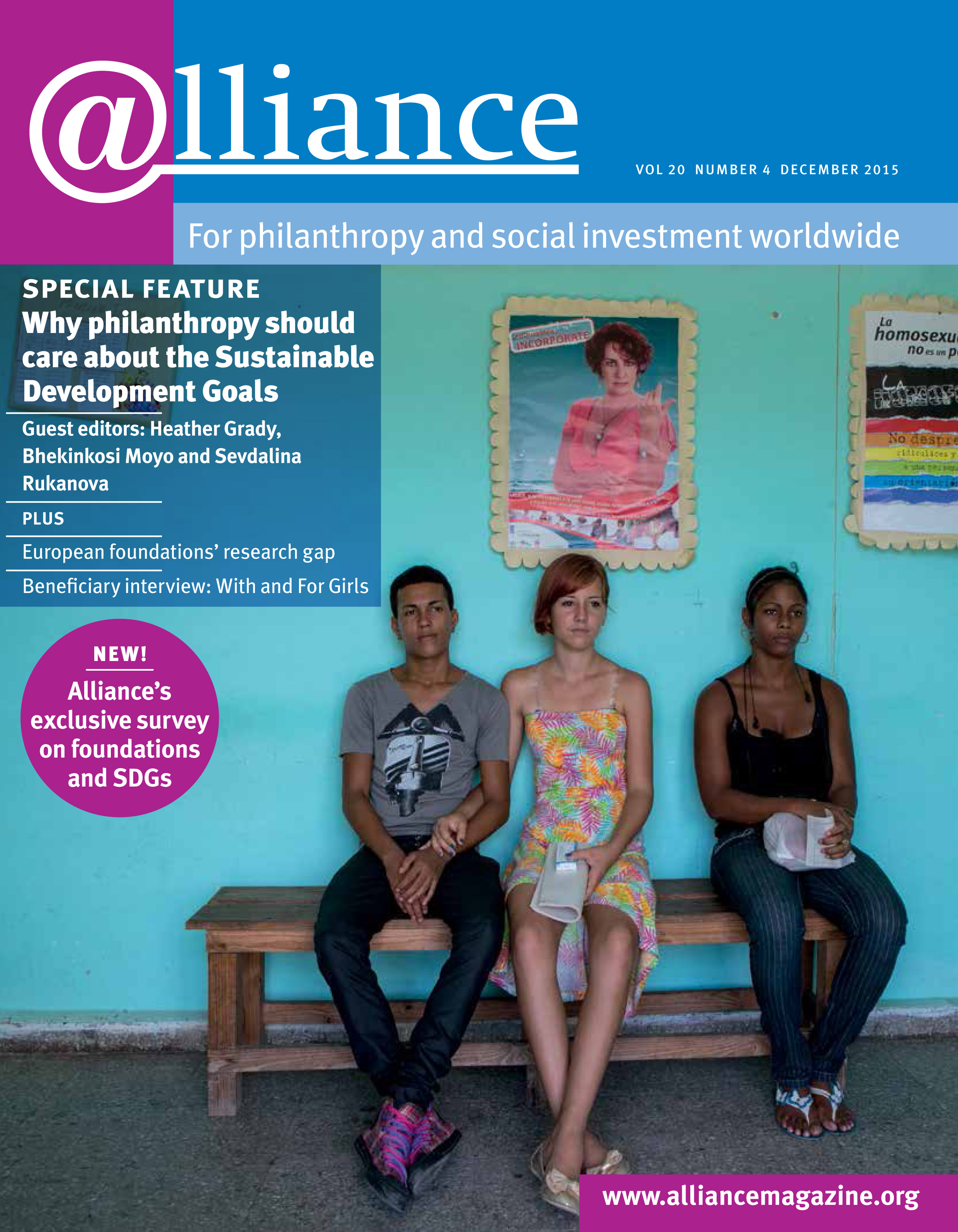
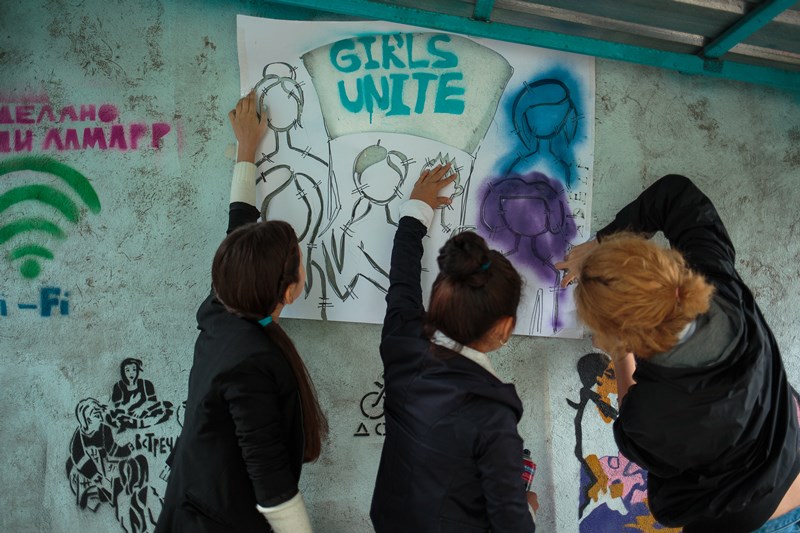

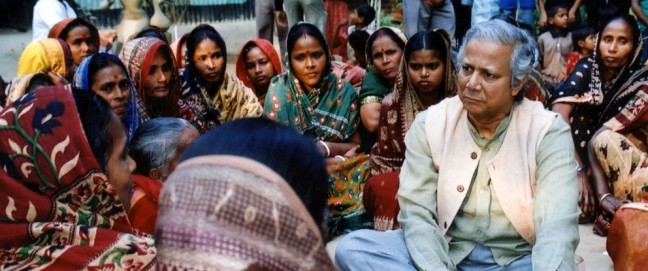
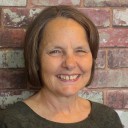
Comments (0)